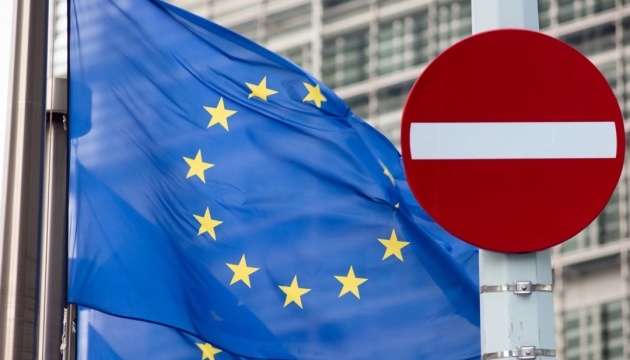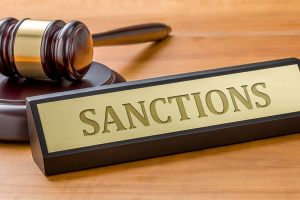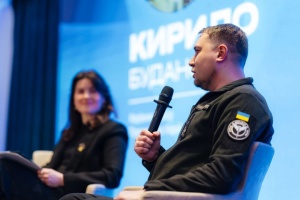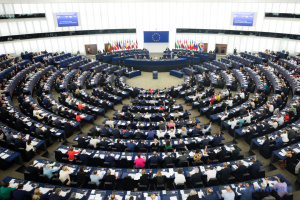
EU outlines details of 10th package of sanctions against Russia
The relevant statement was made on the website of the European Council, an Ukrinform correspondent reports.
“On the sad commemoration of one year since Russia’s full-scale invasion of Ukraine, the Council adopted today a tenth package of additional restrictive measures giving another turn of the screw to the government of the Russian Federation and those responsible for Russia’s continuing war of aggression,” the report states.
In particular, the newly-adopted sanctions package will include increased import-export controls and restrictions. Further export bans were imposed on critical technology and industrial goods delivered to Russia, such as electronics, specialized vehicles, machine parts, spare parts for trucks and jet engines, as well as goods for the construction sector which can be directed to Russia’s military, such as antennas or cranes.
The list of restricted items that could contribute to the technological enhancement of Russia’s defense and security sector will now include additional new electronic components that are be used in Russian weapons systems retrieved on the battlefield, including drones, missiles, helicopters, as well as specific rare earth materials, electronic integrated circuits, thermal cameras, and dual use goods.
The EU’s recent decision expands the list of entities supporting directly Russia’s military and industrial complex in its war of aggression by additional 96 entities, thereby imposing tighter export restrictions on them.
For the first time ever, this list will include seven Iranian entities manufacturing military unmanned aerial vehicles, which have been used by Russia’s military in its war of aggression including against civilian infrastructure.
Further restrictions are also imposed on imports of goods which generate significant revenues for Russia, such as asphalt and synthetic rubber.
In order to address Russia’s systematic, international campaign of disinformation and information manipulation, the Council initiated the process for suspending the broadcasting licenses of two additional media outlets, such as RT Arabic and Sputnik Arabic.
Additionally, the tenth package of sanctions restricts the possibility for Russian nationals to hold any position in the governing bodies of EU critical infrastructures and entities.
In the energy sector, the Council introduced the prohibition to provide gas storage capacity (with the exclusion of the part of LNG facilities) to Russian nationals, in order to protect the security of gas supply in the EU, and avoid Russia’s weaponization of its gas supply and risks of market manipulation.
In order to ensure the effectiveness of the asset freeze prohibitions, the Council decided to introduce more detailed reporting obligations on funds and economic resources belonging to listed individuals and entities which have been frozen or were subject to any move shortly before the listing. The Council also introduced new reporting obligations to the Member States and to the Commission on immobilized reserves and assets of the Central Bank of Russia.
Moreover, aircraft operators will have to notify non-scheduled flights to their national competent authorities, which will then inform other member states.
In addition to economic sanctions, the Council decided to list a significant amount of additional individuals and entities. Three Russian banks have been added to the list of entities subject to the asset freeze and the prohibition to make funds and economic resources available.
The European Commission emphasized that today’s sanctions would cost Russia’s economy more than EUR 11 billion.
“These new bans and restrictions cover EU exports worth EUR 11.4 billion (2021 data). They come on top of the EUR 32.5 billion worth of exports already sanctioned in the previous packages. With today’s package, the EU has sanctioned in total nearly close to half (49%) of its 2021 exports to Russia,” the European Commission noted.
The restrictive measures imposed by the EU are coordinated with international partners, namely Australia, Canada, New Zealand and Norway.




